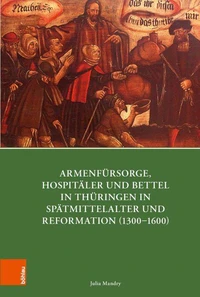Musik der Menschen und Musik der Engel. Frömmigkeitsgeschichtliche Beiträge zur lutherischen Musikkultur. Mit einer Bibliographie der Schriften des Autors
Par : , ,Formats :
Disponible dans votre compte client Decitre ou Furet du Nord dès validation de votre commande. Le format PDF est :
- Compatible avec une lecture sur My Vivlio (smartphone, tablette, ordinateur)
- Compatible avec une lecture sur liseuses Vivlio
- Pour les liseuses autres que Vivlio, vous devez utiliser le logiciel Adobe Digital Edition. Non compatible avec la lecture sur les liseuses Kindle, Remarkable et Sony
 , qui est-ce ?
, qui est-ce ?Notre partenaire de plateforme de lecture numérique où vous retrouverez l'ensemble de vos ebooks gratuitement
Pour en savoir plus sur nos ebooks, consultez notre aide en ligne ici
- Nombre de pages232
- FormatPDF
- ISBN978-3-374-06798-5
- EAN9783374067985
- Date de parution01/04/2021
- Protection num.Digital Watermarking
- Taille2 Mo
- Infos supplémentairespdf
- ÉditeurEvangelische Verlagsanstalt
Résumé
Luthertum und Musik - das ist seit dem 16. Jahrhundert eine Grundsignatur von Kirche und Kultur. Im Gefolge der Reformation entwickelte sich eine reichhaltige und vielfältige lutherische Musikkultur. Heinrich Schütz und Johann Sebastian Bach haben sie in ihren Zeiten und bis in die Gegenwart besonders kräftig bestimmt. Die Aufsätze dieses Bandes handeln von den theologischen und frömmigkeitsgeschichtlichen Kontexten ihrer Werke, spüren ihren Entstehungsbedingungen nach und fragen nach dem Zusammenhang von Irdischem und Himmlischem.
Eine Laudatio und eine Bibliographie der Schriften von Ernst Koch erschließen das reichhaltige Werk eines Kirchenhistorikers, dem es immer auch um den Zusammenhang von Musik und Theologie zu tun war und ist.
[Music of Humans and Music of Angels.
Contributions to Lutheran Music Culture in the History of Piety] Lutheranism and music - this has been a basic signature of church and culture since the 16th century. In the wake of the Reformation, a rich and diverse Lutheran musical culture developed. Heinrich Schütz and Johann Sebastian Bach have had a particularly strong influence on it in their times and up to the present day. The essays in this volume deal with the theological and piety-historical contexts of their works, trace the conditions under which they were written and ask about the connection between the earthly and the heavenly. A laudation and a bibliography of the writings of Ernst Koch open up the rich work of a church historian who has always been and still is concerned with the connection between music and theology.
Contributions to Lutheran Music Culture in the History of Piety] Lutheranism and music - this has been a basic signature of church and culture since the 16th century. In the wake of the Reformation, a rich and diverse Lutheran musical culture developed. Heinrich Schütz and Johann Sebastian Bach have had a particularly strong influence on it in their times and up to the present day. The essays in this volume deal with the theological and piety-historical contexts of their works, trace the conditions under which they were written and ask about the connection between the earthly and the heavenly. A laudation and a bibliography of the writings of Ernst Koch open up the rich work of a church historian who has always been and still is concerned with the connection between music and theology.
Luthertum und Musik - das ist seit dem 16. Jahrhundert eine Grundsignatur von Kirche und Kultur. Im Gefolge der Reformation entwickelte sich eine reichhaltige und vielfältige lutherische Musikkultur. Heinrich Schütz und Johann Sebastian Bach haben sie in ihren Zeiten und bis in die Gegenwart besonders kräftig bestimmt. Die Aufsätze dieses Bandes handeln von den theologischen und frömmigkeitsgeschichtlichen Kontexten ihrer Werke, spüren ihren Entstehungsbedingungen nach und fragen nach dem Zusammenhang von Irdischem und Himmlischem.
Eine Laudatio und eine Bibliographie der Schriften von Ernst Koch erschließen das reichhaltige Werk eines Kirchenhistorikers, dem es immer auch um den Zusammenhang von Musik und Theologie zu tun war und ist.
[Music of Humans and Music of Angels.
Contributions to Lutheran Music Culture in the History of Piety] Lutheranism and music - this has been a basic signature of church and culture since the 16th century. In the wake of the Reformation, a rich and diverse Lutheran musical culture developed. Heinrich Schütz and Johann Sebastian Bach have had a particularly strong influence on it in their times and up to the present day. The essays in this volume deal with the theological and piety-historical contexts of their works, trace the conditions under which they were written and ask about the connection between the earthly and the heavenly. A laudation and a bibliography of the writings of Ernst Koch open up the rich work of a church historian who has always been and still is concerned with the connection between music and theology.
Contributions to Lutheran Music Culture in the History of Piety] Lutheranism and music - this has been a basic signature of church and culture since the 16th century. In the wake of the Reformation, a rich and diverse Lutheran musical culture developed. Heinrich Schütz and Johann Sebastian Bach have had a particularly strong influence on it in their times and up to the present day. The essays in this volume deal with the theological and piety-historical contexts of their works, trace the conditions under which they were written and ask about the connection between the earthly and the heavenly. A laudation and a bibliography of the writings of Ernst Koch open up the rich work of a church historian who has always been and still is concerned with the connection between music and theology.



